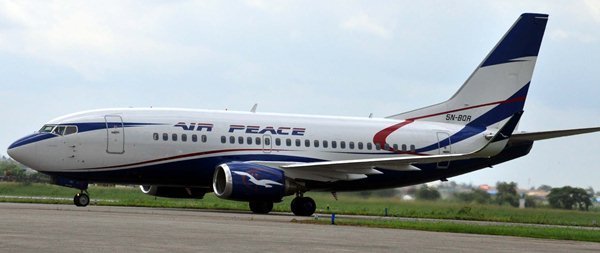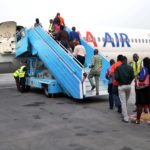
Domestic airlines cannot meet the demand of travellers due to shrinking fleet and this has given rise to high airfares, scramble for flights and the inability of people to travel by air.
THISDAY investigations revealed that in the last one week there have been cut back on the number of aircraft operating domestic service in the country, as airlines have sent their aircraft on maintenance overseas, while one major carrier stopped operation due to delay in certification.
This reduced the number of operating aircraft deployed to service domestic routes to about 20 on Monday and led to scramble for flights, as industry observers project that this problem would last till the end of the year because of the high demand during the yuletide season.
Travel expert and organiser of Akwaaba African Travel Market, IkechiUko, described the development as protracted, saying it happens during the high seasons, especially during the yuletide.
“Having fewer aircraft that cannot meet the demand of travellers is the most important issue right now. Why is the Nigerian passenger not being served well?
“What has happened to the capacity of domestic airlines to serve passengers? Why is Christmas every year a nightmare with weather and fuel challenge and this year we have reduced capacity?
“Something is amiss and borders on emergency. The demand is obviously far more than the supply now. Nigerians need answers. The delays and increased cost will jeopardise the Christmas holiday if not looked into,” he said.
As at Wednesday, the airlines still in operation includedMedview Airline, Max Air, Azman, Overland Airways, Air Peace, Arik Air and Aero Contractors.
But informed source told THISDAY that “these airlines do not have more than 18 to 20 aircraft and the number of aircraft is surely not enough for this high season. They cannot meet the demand but ironically, during the low seasons the number of aircraft will be more than enough.”
A seasoned pilot and aeronautical engineers who also operates in the aviation industry told THISDAY that the problem of low capacity would continue to be an issue in Nigeria because Nigerian airlines operate aged aircraft which demand heavy maintenance that cost so much money.
“Most of the aircraft acquired by Nigerian airlines have about 1000 flight hours left in them from 10,000 hours. That is why an aircraft that is sold $75 million when it is new can be given out at about $3 million. So by the time it is due for heavy checks like C and D checks you may have to cough out $10 to 20 million to do it.

“So you find out that it would be better for you to leave the airplane and go for another one for $3 to $4 million. With $500,000 you can change the whole interior and make it look new but what matters is the airframe. Is it corroded? What would require so much money to work on,” the source said.
According to him, this problem would continue in Nigeria because few people have the resources to buy new airplanes and fewer people would like to invest in airline business “because when you do they will start fighting you through government policies. Government has made the operational environment very harsh.”
“We don’t even have any hope in the national carrier despite the current agitation for it because the way Nigeria is; it cannot run a successful national carrier; even if it is private sector driven. We are not good at doing business that is not our own and nepotism is part of our culture so the little stake government will take to make it a national carrier will eventually be abused. So the clamour for national carrier sounds good but it cannot work in real life in Nigeria,” the source also said.
Industry stakeholder and President of Aviation Round Table (ART), GbengaOlowo, observed recently there has been continuous depletion of the fleet of Nigerian airlines. He recalled that in 2010, Nigerian airlines had 54 commercial operating aircraft but by 2013 the fleet had reduced to 39 and currently about 20, noting that with declining fleet size, route expansion would be limited and robust schedule very difficult and down time for maintenance would impact negatively on schedule.






